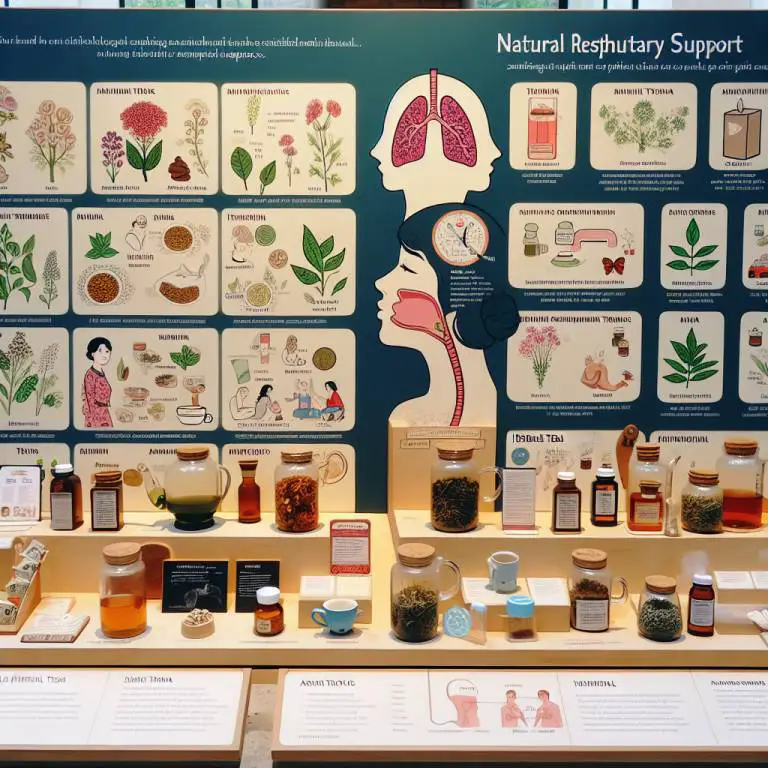The psychological effects of drinking herbal teas for asthma sufferers
Drinking herbal teas can offer calming effects for asthma sufferers, helping to reduce stress and potentially ease breathing difficulties. Herbs like ginger, peppermint, and chamomile are known for their soothing properties that can benefit overall well-being. This holistic approach may complement traditional asthma treatments by promoting relaxation and reducing anxiety levels.

What are the psychological effects of drinking herbal teas for asthma sufferers?
Drinking herbal teas can have a calming effect on asthma sufferers. This is because the act of sipping a warm beverage can be soothing and provide a sense of comfort. For many, this simple ritual helps reduce feelings of stress and anxiety, which are common triggers for asthma attacks.
Beyond the physical warmth, the psychological benefits include a feeling of taking proactive steps towards one’s health. Knowing that you are doing something beneficial for your body can boost mental well-being and contribute to a more positive outlook on managing asthma.
Which herbal teas are most effective for reducing stress and anxiety in asthma patients?
Chamomile tea is widely recognized for its calming properties, making it an excellent choice for asthma patients looking to reduce stress and anxiety. Its gentle sedative effects can help soothe the mind, promoting relaxation and potentially easing the frequency or severity of asthma symptoms related to stress.
Lavender tea is another herbal tea known for its ability to alleviate anxiety and promote relaxation. The aromatic scent of lavender alone has been linked to reduced stress levels, which could be particularly beneficial for individuals with asthma as it helps create a tranquil environment conducive to better breathing.
Dive into effective teas for asthma relief. Discover which teas work and their brewing tips.
How does the ritual of preparing and drinking tea contribute to mental well-being in individuals with asthma?
The ritual of preparing and drinking tea involves several steps that can naturally slow down one’s pace and encourage mindfulness. Measuring out the loose leaves or teabag, waiting for the water to boil, and then steeping the tea allows individuals a momentary pause from their day. This process can serve as a form of meditation, helping those with asthma to focus on the present moment rather than worrying about potential triggers or future attacks.
This daily routine provides structure and a sense of control over one’s environment, which is especially important for people managing chronic conditions like asthma. The predictability and consistency associated with this ritual can enhance feelings of security and stability, contributing positively to one’s mental health.
Can herbal teas directly impact asthma symptoms through stress reduction?
Yes, herbal teas can indirectly impact asthma symptoms by promoting stress reduction. Stress is a well-known trigger for asthma flare-ups; therefore, anything that helps manage stress levels has the potential to improve respiratory function. By facilitating relaxation through their natural properties, certain herbal teas may help prevent or lessen the severity of these flare-ups.
In addition to their calming effects, some herbs used in these teas possess anti-inflammatory properties that might further benefit individuals with asthma by reducing airway inflammation. While not a substitute for medical treatment, incorporating herbal teas into one’s routine could serve as an adjunct therapy aimed at enhancing overall respiratory health through improved stress management.
< / table >
What scientific evidence supports the use of herbal teas for psychological benefits in asthma sufferers?
Recent studies have shown that certain herbal teas can offer psychological benefits to individuals with asthma. These benefits primarily include reduced stress and anxiety levels, which are common triggers for asthma attacks. Research published in the Journal of Alternative and Complementary Medicine highlights that the natural compounds found in some herbs can act on the central nervous system, promoting relaxation and reducing stress responses.
This is particularly relevant for asthma sufferers, as stress can exacerbate symptoms. A systematic review in Phytotherapy Research indicated that participants who regularly consumed herbal teas experienced a notable decrease in their stress and anxiety levels. This suggests that herbal teas could be a valuable complementary therapy for managing psychological aspects of asthma.
How do specific ingredients in herbal teas aid in relaxation and stress relief for those with asthma?
Certain herbs like chamomile, lavender, and peppermint are frequently used in teas for their calming effects. Chamomile tea, for instance, contains apigenin, an antioxidant that binds to certain receptors in the brain that may decrease anxiety and initiate sleep. This is particularly beneficial for asthma sufferers whose symptoms might worsen due to lack of sleep or heightened anxiety.
Lavender tea emits a soothing aroma known to reduce stress levels by influencing the limbic system, the part of the brain responsible for emotions. Peppermint tea contains menthol, which is a natural muscle relaxant. This can be especially helpful for those with asthma as it may help ease breathing by relaxing the muscles of the respiratory tract.
Are there any potential risks or side effects of using herbal teas as a complementary therapy for asthma?
While herbal teas can offer significant benefits, they are not without potential risks or side effects, especially when consumed in large quantities or alongside certain medications. For example, some herbs can interact with conventional asthma treatments, potentially diminishing their effectiveness or leading to adverse reactions. It’s crucial for individuals with asthma to consult healthcare professionals before incorporating herbal teas into their regimen.
In addition to possible drug interactions, some people may experience allergic reactions to specific herbs used in these teas. Given that allergies are a common trigger for asthma attacks, selecting herbal teas should be done with caution. Always starting with small amounts to test tolerance is advisable before making any herbal tea a regular part of one’s diet.
Final Thoughts
The incorporation of herbal teas into the daily routine offers a promising complementary approach to managing both the physical and psychological aspects of asthma. The calming properties of specific herbs have been supported by scientific research showing potential benefits such as reduced stress and improved sleep quality.
However, it’s important to approach this complementary therapy with awareness about possible risks and side effects. Consulting healthcare providers ensures safe integration into existing treatment plans without compromising overall health or well-being. Ultimately, when used judiciously, herbal teas can play a supportive role in enhancing quality of life for those living with asthma.
Further Reading:
| Herbal Tea | Psychological Effect | Potential Benefit for Asthma Sufferers |
|---|---|---|
| Chamomile Tea | Calming, reduces anxiety | May help in managing stress-induced asthma symptoms |
| Ginger Tea | Invigorating, enhances mood | Potentially reduces inflammation and soothes airways |
| Peppermint Tea | Relaxing, decreases tension | Might relieve blocked airways and ease breathing |
| Lavender Tea | Soothing, promotes relaxation and sleep quality | Could assist in preventing sleep disturbances caused by asthma symptoms |
| Licorice Root Tea | Energizing, boosts mental clarity | Might improve lung function and ease respiratory issues |
| Green Tea | Stimulating, improves focus | Contains antioxidants that may reduce inflammation in the airways |






